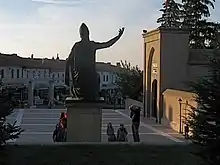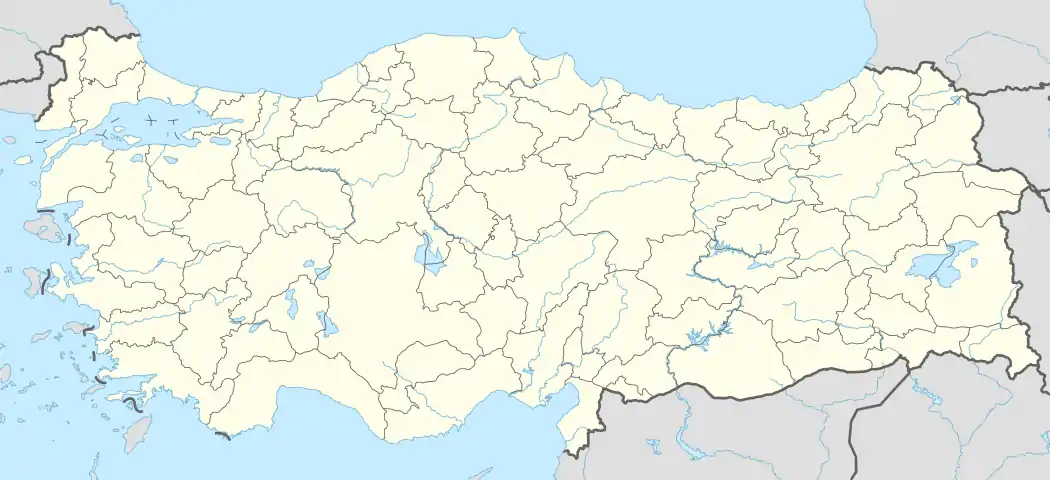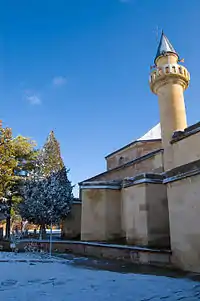Haji Bektash Veli Complex
The Haji Bektash Veli complex (Turkish: Hacıbektaş Külliyesi) is an Alevi Cultural Monument of the Republic of Turkey, located in Hacıbektaş, Nevshehir province. It was built in the 13th century as a Teqe (dergâh) of the Sufi saint Haji Bektash Veli. After his death, his mausoleum was built here. After the European reforms of the founding father of Turkey, Mustafa Kemal Atatürk and the exodus of the Bektashi order to Albania in 1925, the complex was closed declared as museum in 1964. The khanqa of the complex is thought to be the first "King type" khanqa in Turkey.
Hacı Bektaş Veli külliyesi | |
 | |
 Shown within Turkey | |
| Location | Hacıbektaş, Nevşehir Province, Turkey |
|---|---|
| Coordinates | 38°56′N 34°33′E |
| Type | Religious complex |
| History | |
| Periods | Seljuks of Anatolia |

Nowadays it is still visited by hundreds of thousands of Alevis, Bektashis and even Sunnis Muslims from Turkey, Albania and the Turkish diaspora in Europe and the Americas alike. Large festivals are held here every August. Since 2012, the Haji Bektash Veli complex is on the World Heritage Sites Tentative list of the UNESCO.
External links
| Wikimedia Commons has media related to Haji Bektash Veli complex. |